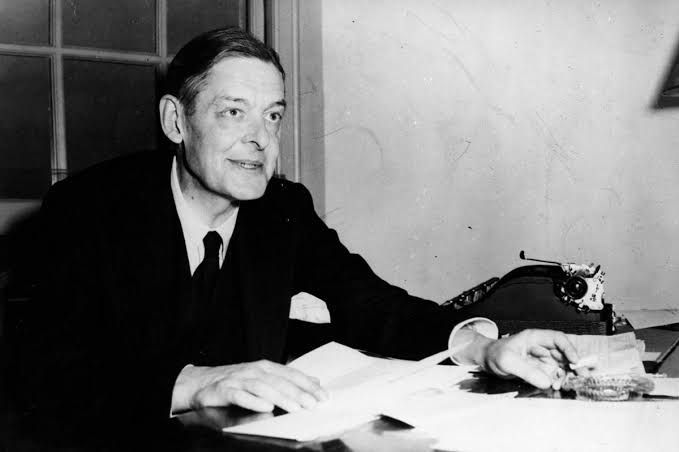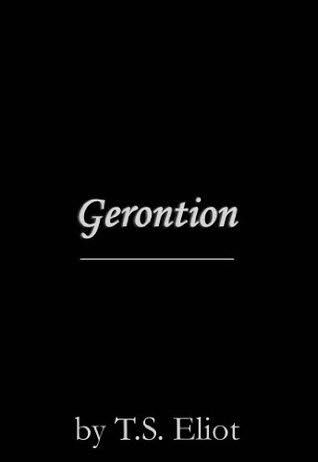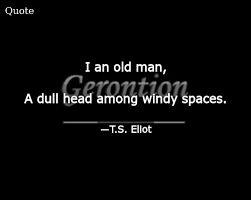Gerontion By T.S. Eliot
Jun 30, 2019 • 110 views

The poem Gerontion by T.S. Eliot is a dramatic monologue of an old man who reminisces about his lost power to live and his last hope of spiritual rebirth which is actually a symbol of sterility and paralysis. Eliot intended the poem 'Gerontion' of to be a part of the poem The Waste Land of which was already in preparation. But Ezra Pound dissuaded him and hence the poem stands by itself.
The way Eliot has boldly used his source material shows the beauty of the poem. Gerontion is constructed out of echoes of literature. In the poem the suggestion of a voice, a character, a personal tragedy is very strong. Many phrases and lines in the poem were also suggested by Eliot's reading of Elizabethan and Jacobean dramatists. Among the plays directly quoted or used in other ways for theme, material or parody are Shakespeare's Measure for Measure, Tourneur's The Revenger's Tragedy, Chapman's Bussy D' Ambois and Biron, Jonson's The Alchemist, Middleton's The Changeling and Shakespeare's Antony and Cleopatra and The Merchant', of Venice.
The old man in Gerontion is neither completely realistic character as Prufrock was, nor does he symbolize a particular social class. He is rather an allegorical figure who represents the shrunken state of Western religious tradition and the preoccupation of modern man with his own degradation. This poem symbolizes a civilization that values money and secular rationalism, with no religious communion or human sense of community, isolation and instability and emotional stagnation.

In this poem, two contrasted worlds appear that is "good old days" and "the bad new days. But it's easier to see that if such a contrast exists, it is extremely superficial. The mysterious figures - Mr. Hakagawa, Madame de Tornquist, Fraulein Von Kulp - are symbols of the modern inheritors. The poem is interesting largely as a training ground for The Waste Land. The dissolution of time, the system of allusion, and even the metrical experimentation within the limits of a much order metrical system, tested in Gerontion.
Though the poem is a prelude to The Waste Land, it is still a significant work in its own.The blank verse of the poem is based on Eliot's study of the post-Shakespearean dramatists. He does not merely revives the blank verse rhythms of the Jacobean dramatist; he develops them so that they become something new. The feeling and the tone of the poem are desperate and deeply pessimistic and there is a blackness and bleakness of the soul, unlike the self-mocking failure of middle-aged Prufrock.

The poem is difficult, chiefly because of the fusions it creates. Firstly, there is a fusion of individual humans and humanity. Secondly, there is a fusion of present and past. Gerontion's mind continuously oscillate between his present situation and his past memories.
The poem consists quotations from the literatures of the past and present which is woven into the central emotive and tonal structure. Eliot had written about the necessity for tradition in his famous essay, Tradition and the Individual Talent in 1917. According to this essay, no poet is an island. There is simply no such thing as a totally original independent talent. The new writer is the product of the tradition and he is also a part of it. In Gerontion, T. S. Eliot puts his theory into practice by weaving quotations and references that it is difficult to say where one ends and the other begins.
